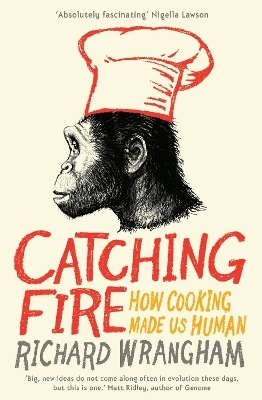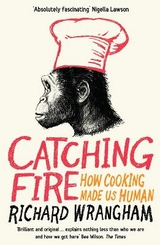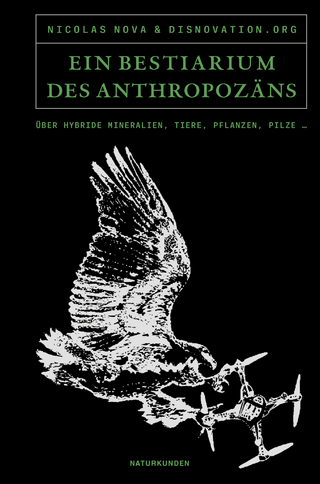
Catching Fire
How Cooking Made Us Human
Seiten
2009
|
Main
Profile Books Ltd (Verlag)
978-1-84668-285-8 (ISBN)
Profile Books Ltd (Verlag)
978-1-84668-285-8 (ISBN)
- Titel erscheint in neuer Auflage
- Artikel merken
Zu diesem Artikel existiert eine Nachauflage
Argues that it was cooking that caused the extraordinary transformation of our ancestors from apelike beings to Homo erectus. This book explains that the habit of eating cooked rather than raw food permitted the digestive tract to shrink and the human brain to grow, helped structure human society, and created the male-female division of labour.
In this stunningly original book, Richard Wrangham argues that it was cooking that caused the extraordinary transformation of our ancestors from apelike beings to Homo erectus. At the heart of Catching Fire lies an explosive new idea: The habit of eating cooked rather than raw food permitted the digestive tract to shrink and the human brain to grow, helped structure human society, and created the male-female division of labour. As our ancestors adapted to using fire, humans emerged as "the cooking apes".
Covering everything from food-labelling and overweight pets to raw-food faddists, Catching Fire offers a startlingly original argument about how we came to be the social, intelligent, and sexual species we are today.
"This notion is surprising, fresh and, in the hands of Richard Wrangham, utterly persuasive ... Big, new ideas do not come along often in evolution these days, but this is one." -Matt Ridley, author of Genome
In this stunningly original book, Richard Wrangham argues that it was cooking that caused the extraordinary transformation of our ancestors from apelike beings to Homo erectus. At the heart of Catching Fire lies an explosive new idea: The habit of eating cooked rather than raw food permitted the digestive tract to shrink and the human brain to grow, helped structure human society, and created the male-female division of labour. As our ancestors adapted to using fire, humans emerged as "the cooking apes".
Covering everything from food-labelling and overweight pets to raw-food faddists, Catching Fire offers a startlingly original argument about how we came to be the social, intelligent, and sexual species we are today.
"This notion is surprising, fresh and, in the hands of Richard Wrangham, utterly persuasive ... Big, new ideas do not come along often in evolution these days, but this is one." -Matt Ridley, author of Genome
Richard Wrangham is the Ruth Moore Professor of Biological Anthropology at Harvard University and Curator of Primate Behavioural Biology at the Peabody Museum. He is the co-author of Demonic Males and co-editor of Chimpanzee Cultures. He lives in Cambridge, Massachusetts.
| Erscheint lt. Verlag | 24.9.2009 |
|---|---|
| Verlagsort | London |
| Sprache | englisch |
| Maße | 153 x 233 mm |
| Gewicht | 474 g |
| Themenwelt | Sachbuch/Ratgeber ► Essen / Trinken |
| Sachbuch/Ratgeber ► Natur / Technik | |
| Naturwissenschaften ► Biologie ► Allgemeines / Lexika | |
| Naturwissenschaften ► Biologie ► Evolution | |
| Naturwissenschaften ► Biologie ► Humanbiologie | |
| Sozialwissenschaften ► Ethnologie | |
| Sozialwissenschaften ► Soziologie | |
| ISBN-10 | 1-84668-285-1 / 1846682851 |
| ISBN-13 | 978-1-84668-285-8 / 9781846682858 |
| Zustand | Neuware |
| Haben Sie eine Frage zum Produkt? |
Mehr entdecken
aus dem Bereich
aus dem Bereich
Über hybride Mineralien, Tiere, Pflanzen, Pilze ...
Buch | Hardcover (2023)
Matthes & Seitz (Verlag)
28,00 €
Band 2: Elektrizität, Optik und Wellen
Buch | Softcover (2022)
Wiley-VCH (Verlag)
39,90 €
Berufsbilder von und für Biologen und Biowissenschaftler
Buch | Softcover (2024)
Verband Biologie, Biowiss. u. Biomedizin in Dtl. e.V. (Verlag)
16,80 €



